As the president and CEO of a 93-hospital, 26-state ministry system, Trinity Health's Mike Slubowski makes the tough decisions needed to sustain that vital ministry.
In his downtime, he likes to rock.
Meanwhile, in his free time, Damond Boatwright, Slubowski's counterpart at Hospital Sisters Health System, turns into a culinary kingmaker, deciding whose barbecue rules.
The two executives are among four who shared with Catholic Health World the diverse ways they unplug from the office and rejuvenate in their off hours.
Music man
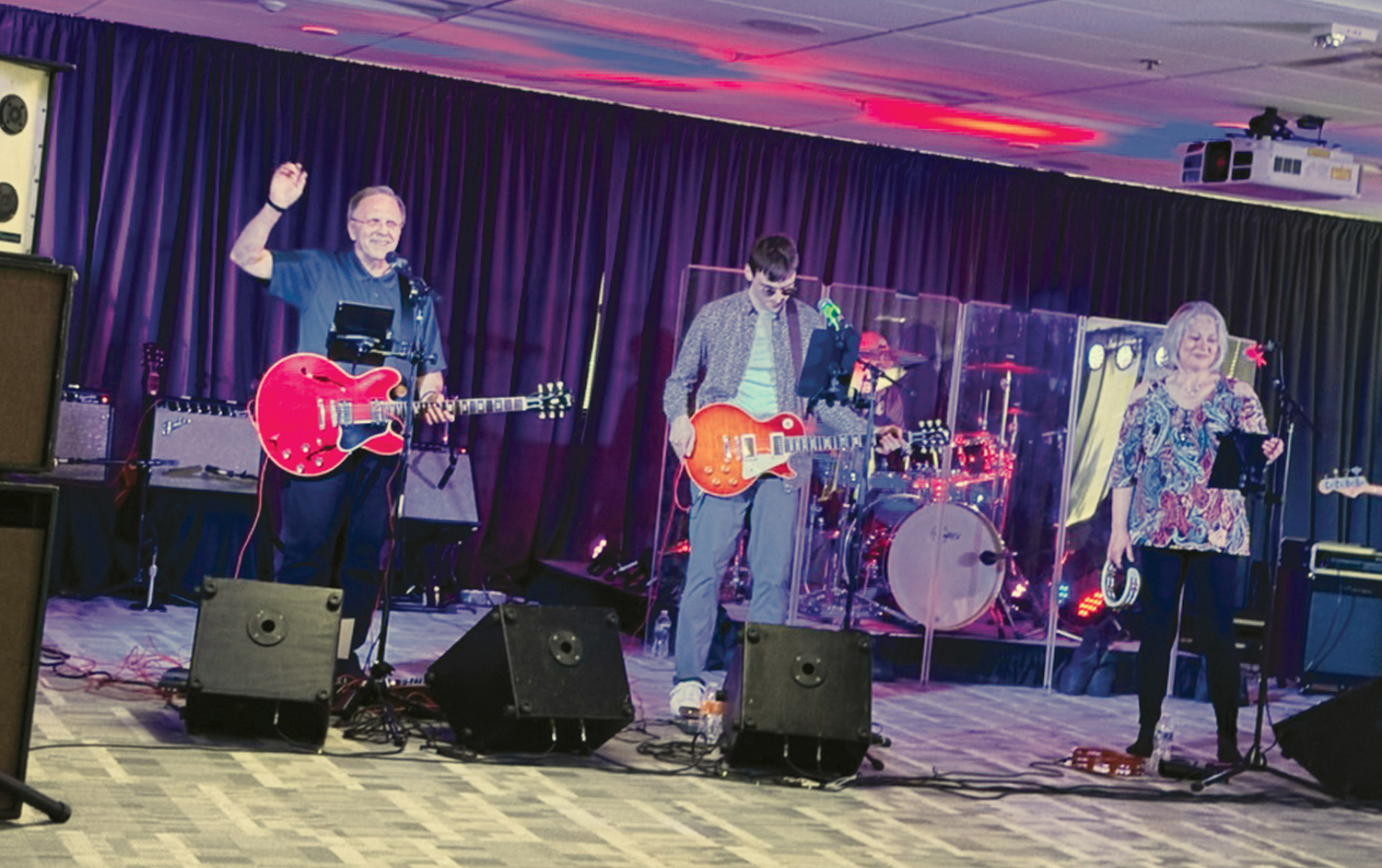
In his personal time, Mike Slubowski needs a refresher from the hectic pace of executive leadership, and he unplugs by plugging in his guitar. He finds playing the electric guitar, and sometimes the bass guitar, to be "a form of meditation. It takes you to a different place and uses a different part of your brain."
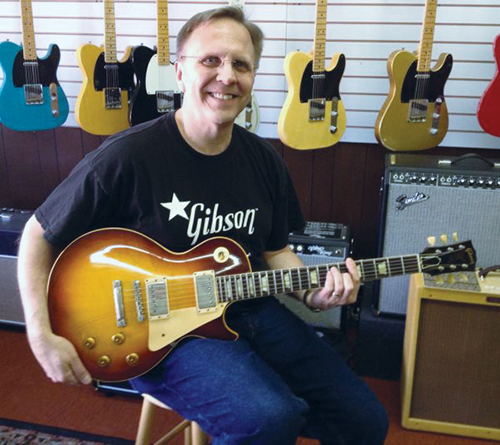
Slubowski started strumming at 10. "Seeing the Beatles on the Ed Sullivan show in 1964, I was hooked!" he says. His dad bought him a secondhand guitar for $10 and Slubowski has been playing ever since. He enjoys classic rock, pop, Motown — almost anything that's been popular from the 1950s thru the 1990s. He's become an avid guitar collector as well — "you can't stop at just one," he says, laughing. He now has about 300 guitars and about 75 amplifiers.
He's been a part of different bands as he has moved around the country. He is from suburban Detroit; when he returned to that area in 2017 to lead Trinity Health, he placed an ad on Craigslist, saying he was "an office guy by day" seeking to start a band that could play casually in their off-hours. The group's five members dubbed themselves "Blind Date" after the feel of the process to cull through the musicians who responded to the ad. The band that eventually formed includes a retired Trinity Health clinician, a retired auto industry attorney, a pharmacy technician and a dental office staff member.
Blind Date rehearses several days a month and plays publicly just about whenever there's an invite. This has included some Trinity Health and charity events.
Slubowski says a lot of people at work are surprised when they find out that he plays guitar.
"I think everyone has to have an outside interest, it makes us more well-rounded and human," he says. "And we can connect more with other people and share our gifts in a new way."
Marathon runner
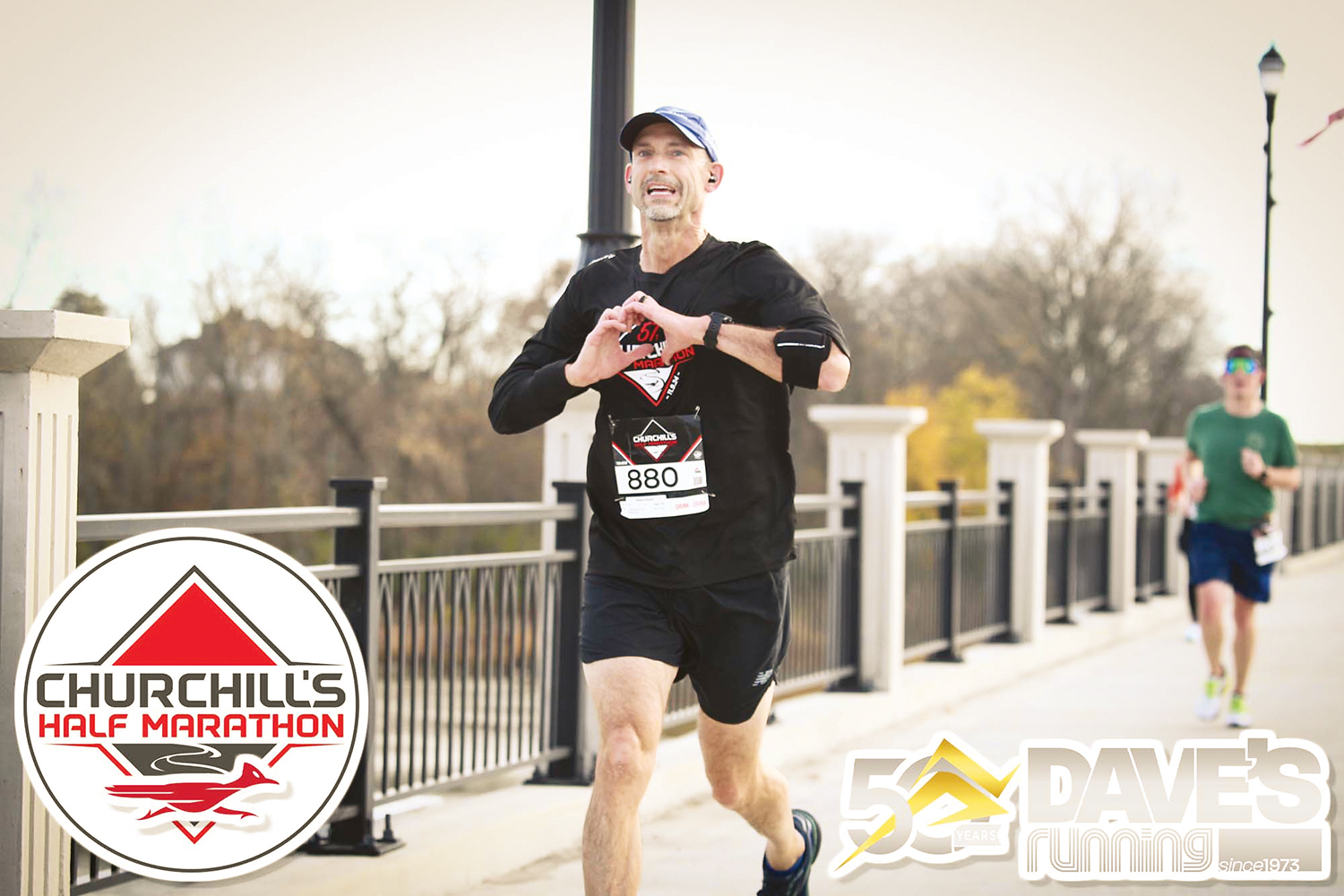
About two decades ago, when Bob Baxter was seeking ways to better his health, a friend challenged him to run the Deadwood Mickelson Trail Marathon that goes through South Dakota's Black Hills. He decided to give it a try.
As a marathon newbie, though not totally new to recreational running, he started getting painful leg cramps around mile 21 of the Mickelson Trail. He began to stumble and said to himself, "This is the worst!"
But then a fellow runner helped him up, offered him some electrolytes, provided a shoulder for him to lean on and gave him the encouragement he needed to make it to the 26.2-mile mark. "I realized there is this community feeling here. You're out there with other people who want to have fun and who want to help anyone who is struggling," he says.
Thus began two decades and counting of marathon running for Baxter, who has been president of Mercy Health — Toledo, Ohio, since 2017. That hospital is part of Bon Secours Mercy Health.
Baxter estimates he's completed about 30 marathons in 14 states, and his goal is to eventually make it to marathons in all 50 states.
He is selective about the ones he chooses to run. He says taking part in a marathon is a great way to see beautiful areas, so he picks races in cities he's been wanting to visit. He's been to runs at the Hoover Dam, communities in the Great Lakes region, and the Rock 'n' Roll Hall of Fame in Cleveland. One of the most impressive ones he has participated in, he says, is the Boston Marathon, one of the nation's premier marathons.
He is a regular at the annual Mercy Health-sponsored Glass City Marathon in Toledo.
Baxter says marathon running has given him a nice way to have work-life balance and has helped him grow as a person. When he runs, he can tune out the noise and daily pressures and focus on other things. "There are so many benefits to running," he says.
Cookoff champ
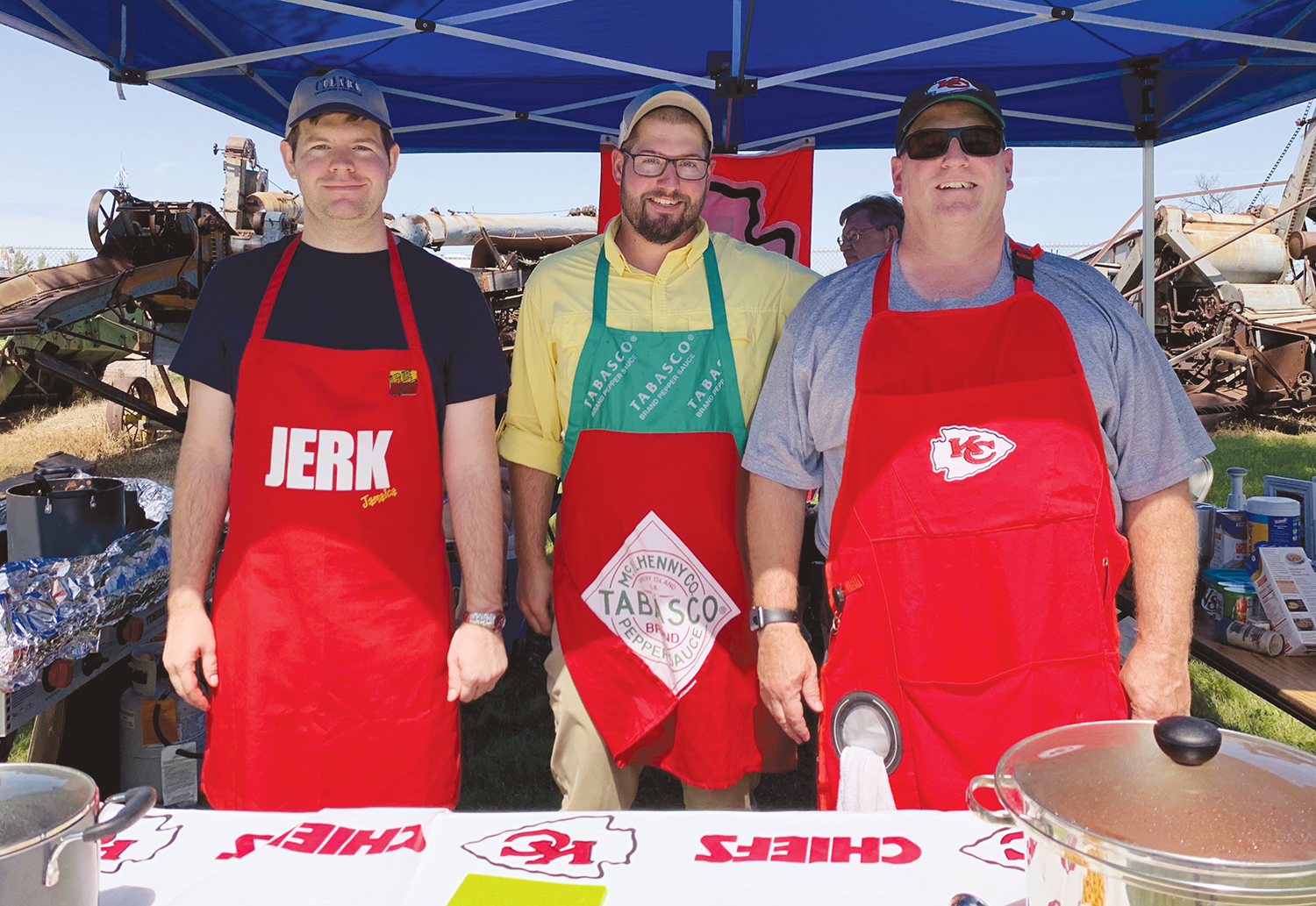
K.C. DeBoer recalls enjoying his dad's homemade chili as a kid. As an adult, it has become a favorite pastime of his to perfect chili recipes and enter them into competitions.
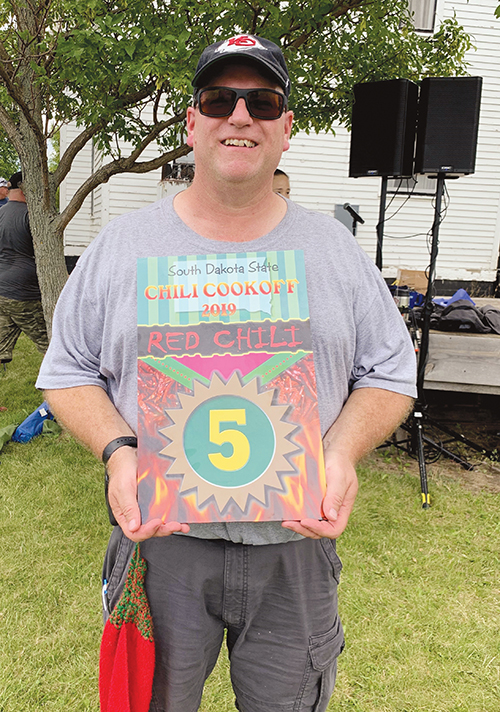
It all began in 1992, when DeBoer was an administrative fellow at Avera St. Luke's Hospital in Aberdeen, South Dakota. The hospital's dietary department decided to compete in that town's South Dakota State Chili Cookoff that the hospital sponsored. In his leader-in-training role, he was asked to join that team. "I had a great time," recalls DeBoer, who has worked in multiple top leadership roles in three states and is now regional president of SSM Health in Mid-Missouri. That region includes SSM Health St. Mary's Hospital — Jefferson City.
Since that first contest, he's participated in at least one chili cookoff but sometimes several every year for the last three decades. He typically is lead chef and usually enters in all three available categories: red, green and homestyle. He sometimes judges chili cookoffs as well.
He's won local competitions many times. He's been a state champion five times. And he has entered world-level competitions about a half dozen times.
DeBoer says there's a "small, great community of people who travel all over the U.S." to participate in chili cookoffs. He's learned a lot by competing in and judging contests, including how to make each bite count.
"This is something I stumbled into 30 years ago and grew to love the people involved," he says. "Plus, these cookoffs benefit charity, so it's also helping the community.
"These are fun events that bring people together — win, lose or draw," he says.
Barbecue kingmaker
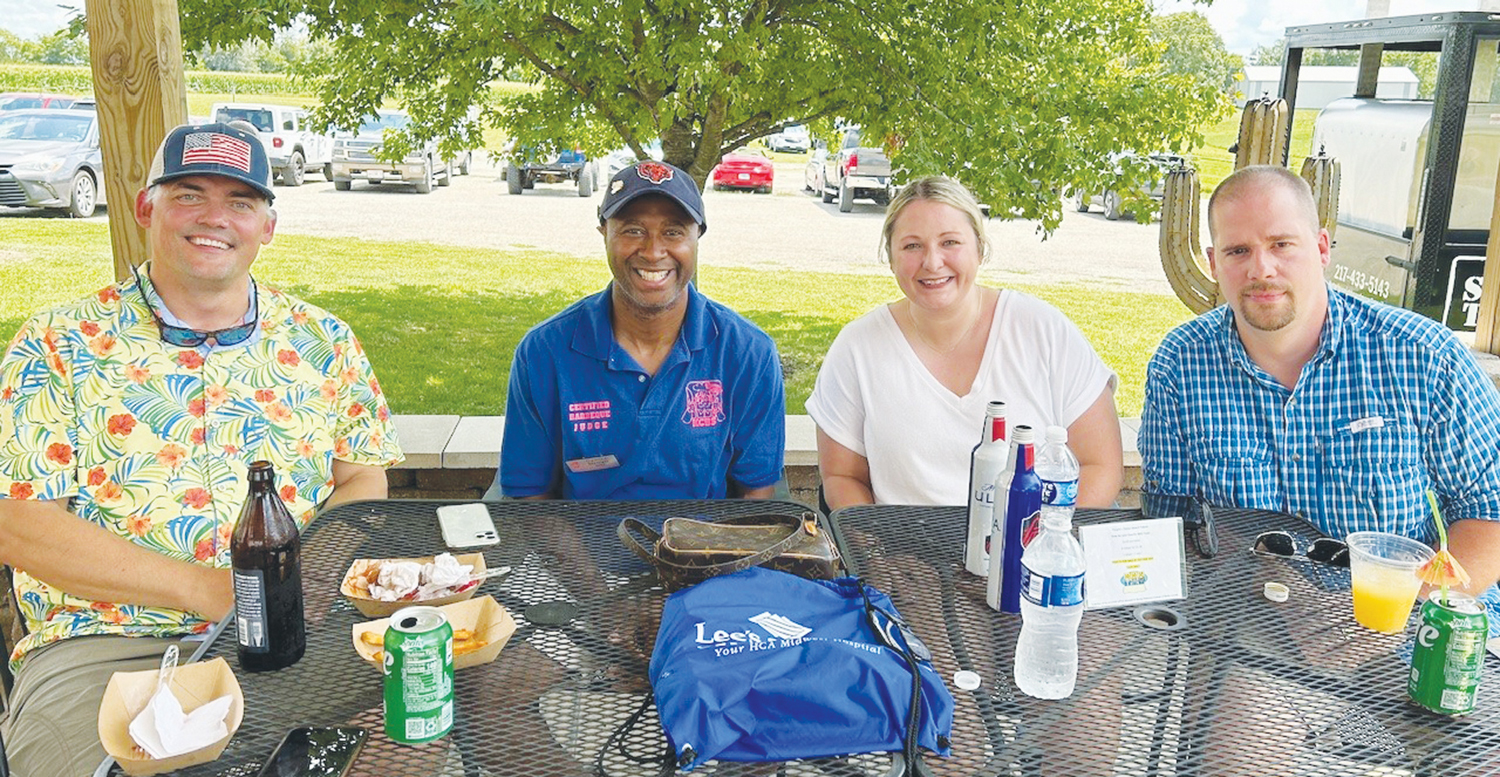
More than two decades ago, Damond Boatwright was participating in the administrative fellowship program at Duke University Health System in Durham, North Carolina, when a friend had what Boatwright calls a "wonderful idea": The two financially strapped graduate students could eat their fill of delicious southern barbecue if they became barbecue contest judges.
The two completed the required seminar and earned their credentials and then quickly began receiving invitations to be judges.
Boatwright, now president and CEO of Hospital Sisters Health System in Springfield, Illinois, concedes he had a big lesson to learn at the outset. "The first one I did, I made a cardinal mistake. I was a hungry grad student, I went in excited, and I immediately turned the barbecue contest into an all-you-can-eat festival," he recalls. He quickly began to feel queasy and stuffed.
"I learned to pace myself," he laughs.
Over the decades, he's judged contests of all sizes, including the American Royal World Series of Barbecue in Kansas City, Kansas.
He says he's learned that the key to barbecue judging is to be open-minded. He says judges shouldn't predetermine how they will feel about a particular submission based on whether it's cooked using a method they like or don't like.
Boatwright has picked up numerous tips along the way for barbecuing a delicious entrée, and he hopes to someday join a crew to compete himself.
He's looking forward to continuing this hobby into the future. "It's this festive, carnival atmosphere," he says, "and you get to meet people from all walks of life, all shades and sizes, all with a passion and a love of good food."
» View a video of Mike Slubowski performing with his band Blind Date
